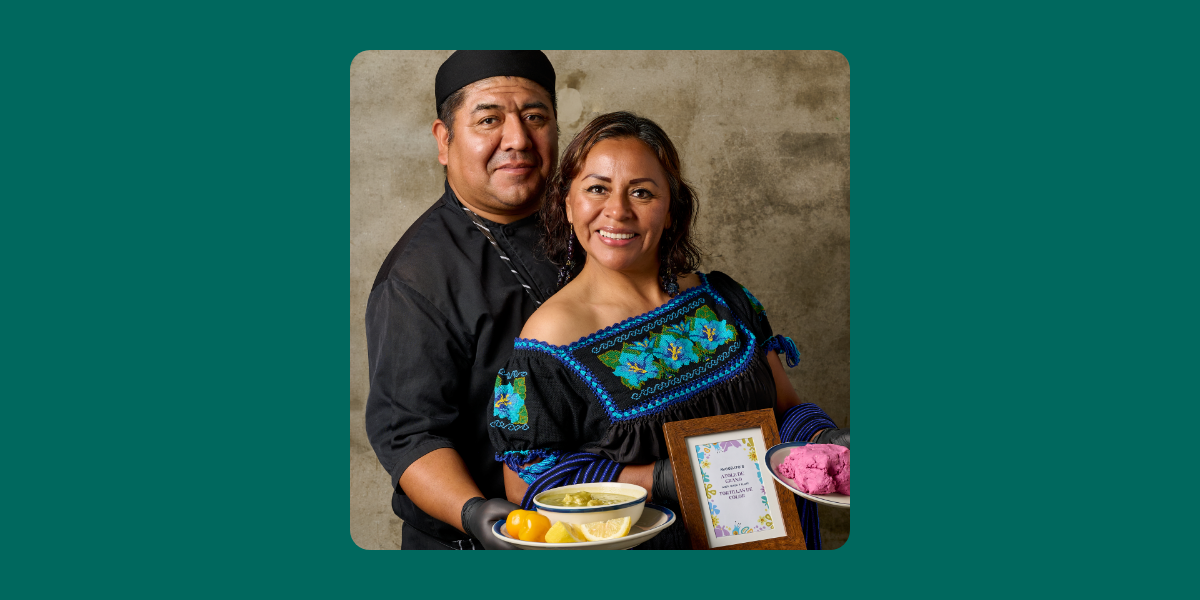Did you know that for all of 2023, the main stretch of Imperial Beach in South San Diego County was closed due to poor water quality and elevated bacterial levels due to toxic sewage from the Tijuana River?
How can partners better prevent or mitigate this pollution? How can we better preserve our coastline in the U.S. and Mexico for future generations?
These issues require a cross-border solution. That is where the Binational Resilience Initiative (BRI) comes in.
The Binational Resilience Initiative
BRI was created in 2022 through a partnership between San Diego Foundation (SDF) and the International Community Foundation. The initiative improves coastal resiliency in the Cali-Baja coastline region, which spans from Oceanside in North San Diego County in the U.S. to Ensenada in northern Baja California, Mexico.
The Cali-Baja region is the largest economic zone along the U.S.-Mexico border and generates a regional GDP of $250 billion, an estimated $70 billion in cross-border trade flows and more than 90 million people crossing the border each year.
BRI addresses our cross-border region’s climate vulnerabilities by empowering binational collaborations between civil organizations, scientists, community leaders and other stakeholders. BRI helps the binational region adapt to the impacts of climate change by leveraging existing cross-border connectivity and resources to reduce pollution and champion local leadership through key collaborations among several nonprofit agencies.
Building Cross-Border Resilience
SDF recently awarded $740,000 in grants to 17 U.S.- and Mexico-based nonprofits to support eight binational projects in the Cali-Baja region. By uniting organizations from both sides of the border, BRI encourages innovative solutions that transcend boundaries.
“Environmental justice and climate resilience don’t recognize the border,” said Mark Stuart, SDF President and CEO. “Together, we are identifying binational solutions that will strengthen our Cali-Baja region for future generations.”
The grants were awarded to projects from nonprofit partners in the U.S. and Mexico that demonstrate effective cross-border collaboration and contribute to coastal preservation or resilience in two or more areas: climate relevance, economic prosperity, knowledge sharing, organizational resilience and/or research.
The selected projects take place in and benefit communities of concern or historically under-resourced communities that could be considered underserved or vulnerable to economic, environmental and social impacts.
The 2024 Binational Resilience Initiative grantees include:
- Ocean Discovery Institute and Investigacion Aplicada a Ecosistemas AC ($57,535 total) to support research by secondary students in San Diego and Ensenada on the biodiversity of coastal dunes in Ensenada and San Quintín in Baja California.
- Reef Check Foundation and ECOCIMATI ($100,000 total) to train more volunteers and expand its binational kelp restoration project surrounding the Coronado Islands off the coast of Rosarito.
- San Diego Coastkeeper, San Diego State University and Proyecto Fronterizo de Educacion Ambiental ($100,000 total) will support the second phase of the One Coast, One Community project, which prioritizes environmental issues affecting the safety and health of those living in or using the coast, reduces environmental vulnerability in binational coastal communities and promotes public-private partnerships.
- Southwest Wetlands Interpretive Association and Colegio de Ingenieros Civiles de Playas de Rosarito AC ($94,906) to create a green infrastructure manual that includes nature-based solutions and is designed specifically for Tijuana and Playas de Rosarito coastal communities to resist and recover from extreme climate events, which can reduce sediment on the U.S. side of the Tijuana River estuary.
- Un Mar de Colores and Kilometro Uno ($100,000) to create Generación SEA: Youth Climate Resilience Academy, a 12-week binational academy for 20 high school students from Baja California and San Diego to empower the next generation of climate resilience leaders in the Cali- Baja region.
- Uniting Natives Culturally and Intertribally Inc. and Instituto de Planeacion Ambiental y Calidad de Vida AC ($95,000 total) to reconstruct the ancestral vision of the use of the coastal zone by the Kumeyaay people, based on participatory planning techniques with the San Antonio Nécua Indigenous community located near the Valle de Guadalupe in Baja California.
- University of San Diego and Promotora de las Bellas Artes ($95,000) for the Border Ecologies project that will pair University of San Diego student mentors with Mexican school children and provide education in environmental justice.
- 4 Walls International, Green Infrastructure Consortium and Universidad Autonoma de Baja California ($100,000 total) to support the Binational Watershed Resilience Expansion (BeWaRE) Project, which includes monitoring efforts, fostering binational cooperation and strategically prioritizing fundable projects in trans-border watersheds such as the Tijuana River.
Local Impact
Since 2022, BRI has granted more than $2 million to 24 projects encompassing 49 partners in the U.S. and Mexico with the same mission and values – building cross-border resilience. The initiative increases the capacity of the Cali-Baja coastal region to survive and thrive in the face of shocks and stresses driven by climate change, as well as other natural, economic and social pressures. It does so by improving coastal resilience, reducing pollution impacts, championing local leadership and building a knowledge base for researchers.
We look forward to continuing the growth of the Environment Initiative at SDF to preserve and protect our resources, build a more sustainable path of economic growth and ensure a higher quality of life for those who call San Diego home.
Join us in supporting these important efforts toward a cleaner and healthier future.






